UNESCO Chair
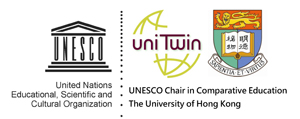
The specific objectives of this Chair are to:
- carry out collaborative research with partners in the field of comparative education (trends and issues related to quality and equity in education, including private tutoring);
- provide policy analysis and advice to assist policy-makers and practitioners;
- design, produce and disseminate studies, policy briefs and other resources in the field of comparative education; and,
- provide training at the undergraduate and postgraduate levels, to students, teachers, administrators and related personnel.
The work of the Chair links closely to the mandate of the Comparative Education Research Centre in the HKU Faculty of Education.
Book on Comparative Education Research now available in 12 languages

Among leadership domains of the Comparative Education Research Centre at the University of Hong Kong is publication of seminal books. The ‘best seller’ is entitled Comparative Education Research: Approaches and Methods. It was edited by Mark Bray, Bob Adamson and Mark Mason, and has appeared in two editions.
Originally in English, translations have been published in Chinese, Farsi, French, Italian, Japanese, Korean, Portuguese, Russian, Spanish, and Turkish, all of which can be accessed here. Most recently, Arabic has been added to the list.
The Arabic translation was accomplished by Hanan Abdelrahim from Alexandria University in Egypt. It was launched on 11 November 2025 in a workshop organized by the Gulf Comparative Education Society linked to its biennial conference in Ras Al Khaimah, United Arab Emirates.

The Al Qasimi Foundation has generously sponsored publication of the book, in the first instance making it freely available online here. The book will be published in paper version in 2026.
The SDGs Towards and Beyond 2030

On 17 October 2025, Tohoku University in Japan hosted a symposium entitled International Educational Development Towards and Beyond 2030: Whose Agendas, and What Goals and Approaches?. Mark Bray was the opening keynote speaker, partnered with Iveta Silova from Arizona State University in the USA. The event particularly focused on the United Nations’ Sustainable Development Goals (SDGs), among which the fourth concerns education.
In this opening event, a team of panellists chaired by Yuto Kitamura from the University of Tokyo then took the discussions further. The panellists were Sung-Sang Yoo (Seoul National University, Korea), Mikiko Nishimura (International Christian University, Japan), and Will Brehm (Canberra University, Australia). Will Brehm is an HKU graduate, having completed his doctorate in 2015 on shadow education in Cambodia.
In his part of the session, Mark Bray highlighted the history of SDG4, commencing with the 1990 World Conference on Education for All (WCEFA) held in Thailand which had set the Education for All (EFA) agenda. This agenda was followed up in the 2000 World Education Forum in Senegal, which set new goals that in due course were merged with the Millennium Development Goals (MDGs) with a target of 2015. Then the SDGs were devised in 2015 with a target of 2030.
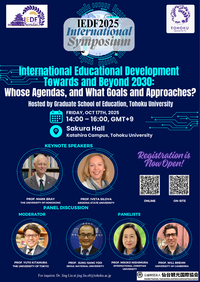
Progress, however, has in some respects lagged. The UN Sustainable Development Goals Report 2025 pointed out that only 35% of the goals were on track or making moderate progress. By contrast, nearly half were moving too slowly, and 18% were in reverse. Factors included the impact of Covid-19, but also politics and inadequate commitment. Further, the goals were arguably unrealistic in the first place – albeit with the understandable strategy of aiming high to achieve more than would have been achieved with only modest aims.
The Symposium discussed these matters with many insights. Iveta Silova stressed the need to reconsider the goals, asking “What if more education isn’t the answer?”. She then highlighted some desirable domains for “unlearning” – in modern/colonial cartography, the logic of infinite growth, so-called best practices, and individualism. Panellists took these themes further, highlighting diversity in whose agendas and what goals and approaches.
At the global level, the precise foci and nature of successor goals beyond 2030 – whether or not still labelled SDGs – will be determined in due course by the United Nations. Meanwhile, the academic community has roles both in evaluating progress towards the existing SDGs and in considering alternative local, national and global tracks. The Tohoku event continued with 100 presentations by postgraduate students of diverse nationalities from 13 universities in Japan and the region. It had impressive dynamism and vision, certainly advancing understanding of diverse agendas, goals and approaches in international educational development.
Private Tutoring and Common Good: Lessons from Australia

The Australian Tutoring Association (ATA) is the peak body for the tutoring industry in Australia. It was established in 2005, and has over 400 members ranging from single-person tutorial operations to multinational franchised businesses.
The Association places strong emphasis on its Code of Conduct, stressing the need for ethical practice and self regulation. Its CEO, Mohan Dhall, has recently published an article on this theme, placing ATA efforts in a comparative context.
On 25 September 2025, the ATA organized its fifth annual conference in Sydney. The event stretched beyond its predecessors to welcome to international as well as national and local speakers.
 | Mark Bray was privileged to make the opening address, during which he highlighted the 2025 UNESCO publication Whose Visions for What Learning: Perspectives, Policies and Practices in Private Supplementary Tutoring. This publication resulted from an October 2024 Policy Forum in Paris hosted by UNESCO in partnership with the HKU UNESCO Chair in Comparative Education. Mohan Dhall was among the participants, bringing important perspectives to the global forum on accountability within the tutoring industry. | 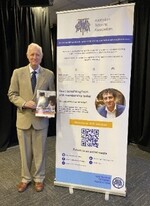 |
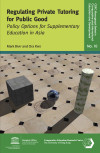
During the ATA conference, Mark Bray elaborated on some of the global issues. He also called attention to his 2014 book, Regulating Private Tutoring for Public Good, co-published by UNESCO and the Comparative Education Research Centre at the University of Hong Kong. That book includes the ATA Code of Conduct in its appendix, and has been translated into Chinese, Farsi and Korean.
Other presentations during the conference shared experiences in running tutorial centres, with foci ranging from identification of market niches to management of copyright. Participants also discussed ways in which Artificial Intelligence may be an asset and/or threat, and considered relationships with schools and governments.
Although the ATA mandate focuses only on Australia, its work has global relevance. The 2024 UNESCO Policy Forum had been subtitled A Multi-Stakeholder Dialogue for Common Good. In this perspective, the ATA provides a valuable model. Members naturally have their own visions linked to their personal circumstances and ambitions, but the ATA stresses the importance of truly serving clients within a framework of common good as exemplified by its Code of Conduct. As such, tutorial enterprises, policy makers and others around the world can gain instructive insights from the ATA mission and mode of operation.
Further on Cultural Heritage: Dunhuang and the Silk Road
Immediately after the ICH programme for teachers hosted by HKU (see below), four participants proceeded to Dunhuang in China’s Gansu Province for a related event. The four participants were Mark Bray and Ora Kwo from HKU, Zhang Wei from ICUA, and Yousriya Al Harthi from Oman where she is the National Coordinator of the UNESCO Associated Schools Network.
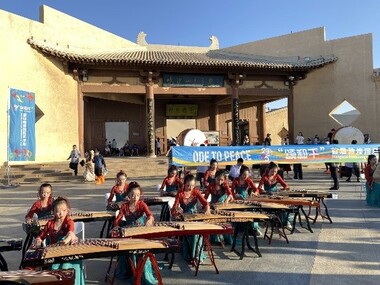
This related event was entitled “Ode to Peace”. It was hosted by ICUA [International Centre for UNESCO ASPnet], the Gansu UNESCO Association, and the Gansu Network for International Exchanges. Supporting/guiding institutions included the World Federation of UNESCO Clubs and Associations (WFUCA). The event was planned as the inaugural Dunhuang International Art Week, with the intention to follow up on an annual basis.
Dunhuang was a key location on the Silk Road that connected West and East over many centuries. The hosts generously took visitors to the famous sites including the Mogao Caves and Xuanquanzhi Postal Station, which are both UNESCO World Heritage sites, and to the Crescent Lake at which the Ode to Peace event was given special attention during an evening performance.
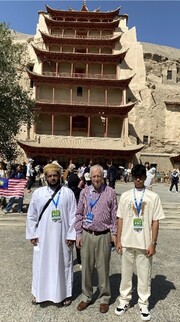
In her opening remarks, Stefania Giannini – UNESCOs Assistant Director-General for Education recognized Dunhuang as a “crossroads of human civilization” and reflected on the transformative power of culture and the arts in building bridges, fostering mutual understanding, and promoting global peace. She stressed the importance of unlocking the potential of youth, and highlighted the role of UNESCO’s Associated Schools Network and of ICUA. The local hosts warmly echoed these sentiments. They emphasized a desire to build on Dunhuang’s centuries of cross-cultural interaction by attracting visitors from around the world as well as from China.
Again stressing the need to involve youth in the vision for future interactions, ICUA arranged for teams of school children to join from Uzbekistan, Oman and Malaysia. They performed dances from their own cultures, and engaged in much interaction with Chinese counterparts from the same age groups.
On the more conceptual side, ICUA organized a Round Table, chaired jointly by Mark Bray and Zhang Wei, entitled “Dunhuang Dialogue on Art, Peace, Heritage and Sustainability”. It brought together both the Dunhuang hosts and the international visitors to share good practices in art-driven peacebuilding, heritage-informed education, intercultural learning, and sustainable development in alignment with UNESCO’s values and priorities.
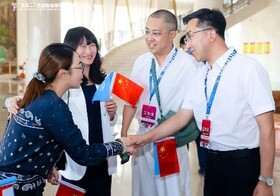
ICUA is now following up, with support from the HKU UNESCO Chair. It plans a sequel that will take further the goals of engaging youth in cross-cultural interactions and will help the Dunhuang authorities with strengthened internationalization.
Teachers Convene to Discuss Intangible Cultural Heritage
The UN 2030 Agenda for sustainable development highlights the transformative power of education in fostering cultural diversity and global citizenship. Intangible Cultural Heritage (ICH) – including oral traditions, performing arts, social practices, and traditional craftsmanship – plays a vital role.
From 4-8 August, HKU welcomed primary and secondary teachers from eight countries to showcase and discuss their own practices. The teachers were from Bhutan, China, India, Oman, Palau, South Korea, Sri Lanka, and Uzbekistan. The co-hosts were the UNESCO Chair at HKU and the International Centre for UNESCO ASPnet (ICUA) in Sanya, China.

The opening dovetailed with a World Youth Pulse forum at the Hong Kong Exhibition and Convention Centre. This event brought together youth from multiple Chinese locations with counterparts from a wide range of countries in the region and beyond.
Then, on the second and third days, teachers from the eight countries mentioned above moved to the HKU campus for workshops to discuss curriculum and pedagogy for ICH education. Opening keynotes by Florian Knothe, Director of the HKU Museum and Art Gallery, and by Wang Dan in the HKU Faculty of Education set the scene. Participants then presented on themes including:
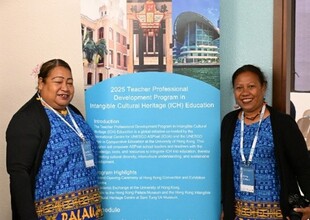
- peepal trees (India),
- kungqu opera and guqin (China),
- triangles in arts and crafts (Bhutan),
- papercutting (China),
- weaving (Palau),
- hanji traditional paper (South Korea),
- dumbara rata traditional mats (Sri Lanka),
- traditional clothing (Uzbekistan),
- yoga (India),
- moxibustion (China), and
- traditional chanting (Palau).
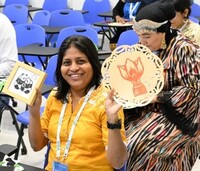
Next, moving beyond the HKU campus, the group visited Hong Kong’s Sam Tung Uk museum. This restored heritage building provides an authentic insight into the lifestyle of villagers long before the region became urbanised. The museum includes an ICH Centre with focus on themes including dragon boats, bamboo scaffolding, and lion dances. Next was the Hong Kong Palace Museum, which shows over 900 priceless treasures in collaboration with its Beijing counterpart.
Some of the dynamics are captured in this video. Participants agreed that the programme was an unforgettable experience in international sharing and exchange. Focusing on pedagogy as well as curriculum content, it brought to the fore multiple themes on how the E of UNESCO (i.e. Educational) can be linked meaningfully and productively with the C of UNESCO (i.e. Cultural). ICUA is now following up with a compendium of good practices to ensure lasting impact from the event.

The Silk Roads and Mutual Learning among Civilizations
On May 23 and 24, 2025, Xi’an in China’s Shaanxi Province hosted a major event entitled ‘The Silk Roads: Mutual Learning among Civilizations and Cultural Innovation’.
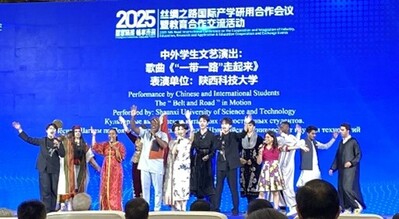
The Silk Roads were a network of trade routes connecting Asia with Europe and parts of Africa from around 200 BCE to the 15th century CE. These routes facilitated the exchange of goods, ideas and cultures between diverse societies. The name is derived from the highly valued Chinese silk that was a major commodity traded along these routes. Xi’an, the ancient capital of China, is widely regarded as the starting/ending point of the Silk Roads at the eastern end.
The event in May 2025 attracted strong participation from Central Asia, and particularly Kazakhstan, Kyrgyzstan, Tajikistan and Uzbekistan. Other participants, bringing North African voices, came from Algeria, Egypt and Morocco. They interacted with the Chinese hosts, particularly from Northwest University.
The opening ceremony was moderated by the Director of Shaanxi Province’s Department of Education, and the multidisciplinary occasion brought together voices from industry, education, research and application. Sub-forums focused on exchanges and mutual learning between China and (i) Central Asian counties and (ii) Arab States.
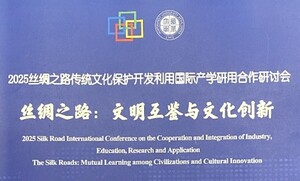
Within the event, UNESCO Chairholder Mark Bray made a presentation entitled ‘UNESCO’s Vision of Exchange and Mutual Learning: Achievements, Challenges and Strategies’. He commenced with UNESCO’s origins and mandate, and highlighted ways in which the organization has operated over the decades. The discussions included comparison with the work of other national and international bodies in the promotion of intercultural exchange and mutual learning. Separately, Professor Bray presented a related lecture in Northwest University where he was able to interact with new generations of students finding ways to connect with wider cultures.
The Futures of Education

On 2-4 December, 2024 UNESCO convened an International Forum on the Futures of Education. The event was held in Suwon, Republic of Korea, and was co-organised by the Korean Ministry of Education, the Gyeonggido Province Office of Education, and the Korean National Commission for UNESCO. It marked the next step in visioning and implementing ideas from UNESCO’s 2021 report entitled Reimagining our Futures Together: A New Social Contract for Education. This report is now available in 18 languages, with the Korean version having been launched during the Forum.
The event was opened by Sahle-Work Zewde, former President of the Federal Democratic Republic of Ethiopia. She had chaired the International Commission on the Futures of Education that had produced the 2021 report. Earlier in 2024 she had presided over a meeting in Addis Ababa on Transforming Knowledge for Africa’s Future (also attended by the HKU UNESCO Chairholder – see further down this website), which was in some respects a predecessor to the Korean meeting.
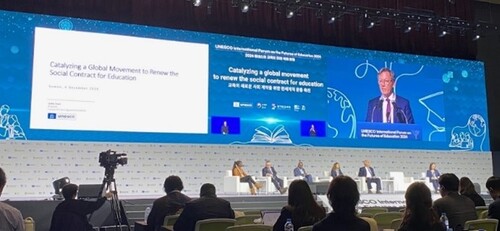
The Forum was attended by about 1,000 people plus online participants, with a wide range of age groups and professional roles. Three questions provided a core throughout the event:
- What should we continue doing?
- What should we abandon?
- What needs to be creatively reimagined?
Answers to these questions were naturally diverse, which again underlined the need for dialogue.
Within the Forum a related event focused on a special issue of UNESCO’s journal Prospects co-edited by Sobhi Tawil and Elena Toukan. Sobhi Tawil had led the work on the Reimagining our Futures Together report on the UNESCO side, and Elena Toukan was a member of his team. The special issue has 29 papers plus an opening Editorial by Stefania Giannini, UNESCO’s Assistant Director-General for Education. The launch gave an overview of the collection and then a specific focus on three of the contributions. One of these three was written by Mark Bray and entitled ‘Governing private tutoring for public good: Lessons from international experiences’.
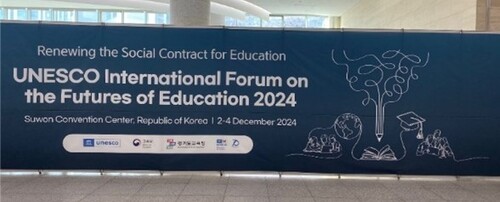
The Forum concluded with the launch of a Global Observatory for ongoing work on this theme. The UNESCO Chair at HKU will remain among the active participants in this ongoing work.
Convergence of Anniversary Celebrations

The Faculty of Education was created in 1984, and 2024 therefore brought its 40th anniversary. The Faculty has held a number of celebratory activities focusing on specific specialisations and sub-fields.
Among these specialisations and sub-fields is comparative education, and 2024 also brought the 30th anniversary of the Comparative Education Research Centre (CERC).
On November 22-24, 2024 the CERC partnered with the Comparative Education Society of Hong Kong (CESHK) to host the annual CESHK conference. The CESHK was established in 1989, and thus was celebrating its 35th anniversary.
As part of these celebrations, Mark Bray presented a special Anniversary Lecture entitled ‘Comparative Education: Traditions, Applications, and the Role of HKU’. This was the same title as the lecture he had delivered in 2004 when Dean, on the occasion of the 20th anniversary of the Faculty and the 10th anniversary of CERC. It therefore gave the opportunity to consider multiple milestones.
Among these milestones was the creation of the UNESCO Chair in Comparative Education in 2012. Professor Bray pointed out that the Chair belongs to the University rather than to the Faculty, but that the reputation of the Faculty and particularly of CERC within the Faculty, were major components in the UNESCO decision to grant the Chair. Professor Bray then highlighted some dimensions of the work of the Chair, particularly in the domain of shadow education but also in broader consultations including the UN Sustainable Development Goals (SDGs). The work of the Chair is reviewed every four years, and its demonstrated strengths have underpinned its renewal each time by UNESCO and the University.
Following the Anniversary Lecture, a special feature was a panel, chaired by Professor Bray, of seven former and current Directors of CERC. Lee Wing On was the founding Director, followed by Mark Bray. Then came Bob Adamson, Mark Mason, Yang Rui, Mark Bray again, Liz Jackson, Anatoly Oleksiyenko, Nutsa Kobakhidze and Jeremy Rappleye. They are pictured here in a row on the stage, with the exception of Bob Adamson who was unable to attend. Recordings of the lecture, an associated video of CERC history, and the remarks from the row of Directors, are available here.
Convening in Kuwait
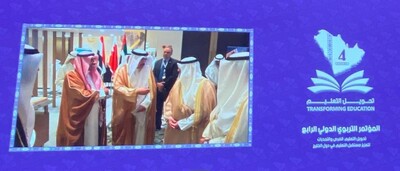
On 5-6 November, 2024, the Gulf Arab States Educational Research Center (GASERC) convened national, regional and global personnel in Kuwait for an international conference. It was entitled ‘Transforming Education: Opportunities and Challenges to Enhance the Future of Education in the Gulf Countries’.
GASERC primarily serves the seven member states of the Arab Bureau of Education for the Gulf States (ABEGS). Six of these states are members of the Gulf Cooperation Council (GCC), namely Bahrain, Kuwait, Oman, Qatar, Saudi Arabia, and United Arab Emirates. The seventh state is Yemen.
The conference was a response to the Transforming Education Summit organised by the United Nations in 2022. The conference organisers stressed that despite disparities in educational, social and economic circumstances, different countries and regions have common approaches for revolutionising education. The organisers added that while the Gulf countries have made significant progress in strengthening their education systems, they still encounter major challenges in the quality of education, teachers’ competencies, and aligning educational goals and curricula with the demands of the changing world.
The event opened with speeches from the Minister of Higher Education and Scientific Research in Kuwait, the Secretary-General of the GCC, the Director-General of ABEGS, the interim Director of UNESCO’s International Bureau of Education (IBE), the Director-General of the Islamic World Education, Scientific and Cultural Organization (ICESCO), and the Director of GASERC.
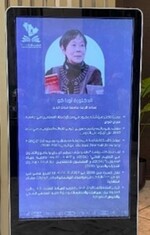
The conference then moved to a set of keynote addresses focusing on global and regional issues. Some of these addresses highlighted the UN Sustainable Development Goals, with particular focus on equity, access and quality. Others focused on teachers, technology, and curriculum.
Among the keynote speakers were two from HKU. First, Ora Kwo responded to the conference sub-theme about policies on supporting teachers for education transformation. She highlighted dilemmas between the visible and the less visible, the immediate and the visionary, and the managerial and the philosophical in educational practices. As producers of knowledge, she pointed out, teachers need safe space for professional dialogues through which the courage to engage in inquiry into teaching and learning can be manifested as a journey of re-integration of the heart and the mind for knowledge-reconstruction. As illustrated in the book Teachers as Learners, the significance of teacher-learning is revealed in teachers’ growing awareness and capacity to bridge the gaps between educational goals and realities.
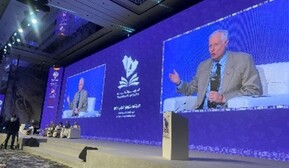
Secondly, Mark Bray addressed the sub-theme of financing and efficiency in education systems. His presentation focused on private tutoring, pointing out that alongside government financing are substantial household commitments. Drawing particularly on his book about Shadow Education in the Middle East and on related work specifically concerned with the GCC countries, Professor Bray highlighted the expanding scale and roles of private tutoring in the region. He noted that complementarities between private tutoring and public schooling can in some respects be viewed as improvements in efficiency, but that private tutoring can also have a problematic backwash on public schooling and therefore needs careful government attention.
Between the keynote addresses, a round table focused on priorities in the region from the perspectives of individual participants, and a training workshop addressed ways to harness Artificial Intelligence in the education sector.
The fact that the conference was strongly grounded in the Arab cultures of the ABEGS countries made it very illuminating from a comparative perspective. The local and national agendas and strategies were seen to dovetail in significant ways with UNESCO and United Nations global agendas and strategies.
UNESCO Policy Forum on Private Supplementary Tutoring
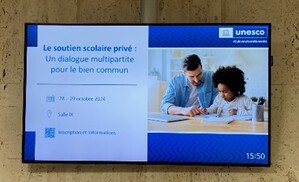
HKU’s UNESCO Chair has co-hosted with UNESCO a Policy Forum entitled Private Supplementary Tutoring: A Multi-Stakeholder Dialogue for Common Good (October 28-29, 2024). Major inputs to the agenda and organization were contributed by the Centre for International Research in Supplementary Tutoring (CIRIST) at East China Normal University (ECNU).
The Policy Forum was a sequel to a 2007 counterpart organized by Mark Bray during his tenure as Director of UNESCO’s International Institute for Educational Planning (IIEP), and included examination of changing patterns since that era. The 2024 event had the added significance of being held in UNESCO Headquarters rather than in one of the Institutes, helping private supplementary tutoring to enter UNESCO’s core agenda.
Diverse stakeholders
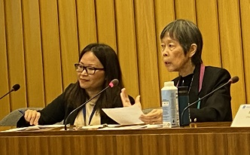
The Policy Forum brought together participants from Asia, Africa, Europe, Latin America, and Oceania. Their contextual variations greatly enriched the discussions.
Equally valuable, and in line with the title about multi-stakeholder dialogue, was the range of roles. Government personnel came from the Ministries of Education in Eritrea, Nigeria and Qatar, and were accompanied by an Egyptian former Minister of Education and Portuguese former Deputy Minister of Education. Personnel in international organizations were not only from UNESCO but also from the Office of the United Nations High Commissioner for Human Rights and a counterpart NGO.
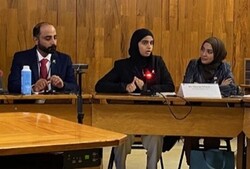
Other categories included tutors, teachers and researchers. Many participants had been or were tutoring providers, and among them were representatives of tutors’ professional bodies in Australia and the United Kingdom. Teachers from Oman and Spain brought contemporary voices from schools, and a representative of the South African Democratic Teachers Union brought a corporate voice. The researchers were from universities in China, France, Germany, Malaysia, Portugal, Qatar, Spain, and the United Kingdom.
In addition, of course, all participants had at some time been students in schools, and reflected on their experiences of (not) receiving tutoring during those times. Similarly, many participants as parents had faced the question whether to invest in tutoring for their children. One participant was a current Grade 11 student from rural Oman.
Setting the scene

The event was jointly launched by Borhene Chakroun (Director of UNESCO’s Division for Policies and Lifelong Learning Systems) and by Gwang-Chol Chang (Chief of the Education Policy Section in UNESCO Headquarters).
Chakroun noted that leaders in a parallel meeting were reviewing progress towards the Sustainable Development Goal 4 (SDG 4) about ensuring inclusive and equitable quality education for all. He highlighted the rapid expansion of private tutoring. According to a Global Strategic Business Report, he observed, in 2023 private tutoring had an estimated value of US$159 billion, and was expected to reach US$288 billion by 2030. This compared with the estimated annual financing gap of US$97 billion for countries to reach their national SDG4 targets.
Chang echoed this observation, stressing the need for UNESCO to address out-of-school as well as in-school education. Especially important, he added, are issues of equity and access, since lower-income families cannot afford the qualities and quantities of tutoring accessed by their higher-income counterparts.

Mark Bray then presented the keynote, based on his Background Paper that had been distributed to participants. This document, entitled Whose Visions for What Learning? Perspectives, Policies and Practices in Private Supplementary Tutoring, will in due course be published open-access by UNESCO. The Background Paper showed much commonality in tutoring demand and supply, but also significant diversity across contexts.
The keynote was followed by a plenary panel, chaired by Mark Bray, of three participants giving perspectives from Ministries of Education. They were Alexandre Ventura (Portugal), Obianuju Anigbogu (Nigeria), and Tedros Sium (Eritrea).
Unpacking the issues

The event then moved to break-out sessions in which participants expanded their interactive dialogue. The first session focused on the impact of private tutoring which, participants noted, could be either positive or negative. One group considered academic outcomes and student well-being, while the other addressed equity and social justice.
A subsequent pair of break-out sessions addressed regulations from the perspectives of governments and other stakeholders. Participants stressed the importance of regulations both for commercial enterprises and for teachers who offer private tutoring. Nevertheless, participants stressed the need avoid one-size-fits-all regulations and again to consider contextual variations.
The third group of break-out sessions focused on ways to address knowledge gaps, policy gaps, and action gaps. The need for more extensive and better-quality data was stressed throughout the event. Yet participants added that while data enable constructive policies, they do not automatically generate such policies. Negotiations are needed at multiple levels within education systems.

Between the various break-out sessions were several plenaries. One, entitled ‘Confronting Shadow Education’, included focus on Egypt, China, and Qatar. Tarek Shawki provided a personal account of his five years as Minister of Education in Egypt, working hard at reform but encountering resistance. Zhang Wei, Director of CIRIST at East China Normal University, then briefed participants on the goals, complexities and achievements of China’s ‘double reduction’ policy launched in 2021. Eman Al Naemi, Director of the Department for Educational Services Centres in the Qatar Ministry of Education, highlighted the role of these Centres as an alternative to private tutoring.
A different plenary focused on the opportunities and challenges brought by Artificial Intelligence (AI). It noted the radical shifts brought by AI not only to tutoring pedagogy but also to business models. The presenters also highlighted issues of data privacy, social inequalities, and the digital divide.
Looking ahead
The participants’ feedback showed that all would take home core messages for consideration and possible action, having appreciated the dynamic dialogues in response to substantive plenary speeches and break-out sessions. In the words of one participant, “the diversity (and, sometimes, conflict) of voices was really refreshing”. Like others, this colleague also valued having two days to discuss one subject in depth “instead of shuffling around from one paper session to another as we so often do at academic conferences”.
UNESCO Headquarters is now preparing a Policy Brief to summarise the outcomes. This document will feed into UNESCO processes and wider discussions, and provide a tool for all participants to take further action in their own domains of work and life.
In parallel, the UNESCO Chair at HKU is developing further steps on the research side; and possibilities are being explored for regional events to take the discussions further.

Transforming Knowledge for Africa’s Future

From September 30 to October 2, 2024, UNESCO and the African Union convened 600 UNESCO Chairs and Partners for an International Forum. The event was held in the prestigious conference building of the African Union in Addis Ababa. Ethiopian President Sahle-Work Zewde, who had chaired the committee that produced UNESCO’s Futures of Education Report, presided over the opening session. Amharic and Swahili versions of the Report were launched, and now sit alongside the existing versions in 13 languages.
On the first day of the Forum, UNESCO Chairholder Mark Bray participated in a panel on the future of the right to education. Building on previous discussions in Geneva and Paris (see below), he noted complexities in the domain of shadow education and called attention to the book on Shadow Education in Africa published by the Comparative Education Research Centre at the University of Hong Kong.

Following the Forum was a one-day event, also in the African Union building, organised by the UNESCO International Institute for Capacity Building in Africa (IICBA) in conjunction with the African Union. It marked World Teachers’ Day, and was another forward-looking event that stressed the importance of international partnerships.
World’s Top 2%
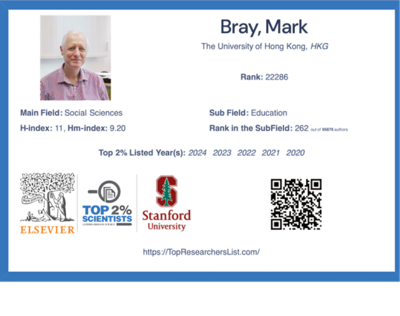
Stanford University's list of "World's Top 2%" scientists identifies the world's leading researchers, representing approximately 2% of all scientists worldwide. It encompasses standardised data on citations, h-index, and a wide range of bibliometric indicators. The methodology is available here.
Each year since the list was launched in 2020, Mark Bray has been included. In 2024 he was ranked 262 among 95,876 authors.
Professor Bray is especially known for his work on shadow education. A 2024 bibliographic analysis by Hajar and Mehmet observed that “Bray and his colleagues from the University of Hong Kong … have been the most prolific and influential research team”. This study was an update of a 2022 analysis that similarly stated that “Bray has been the most productive researcher in the shadow education field with the highest number of publications …, citation count …, and total link strength”. A related finding was presented in 2024 by Li and Wang: “Mark Bray leads within shadow education research cooperation networks because all his three centrality measures rank at the top.”
ICUA Governing Board and Launch of Youth Campaign
The International Centre for UNESCO ASPnet (ICUA) was established in 2019 in Sanya, Hainan (see post below). Under the leadership of its newly-appointed Executive Director, Prof. Zhang Wei, it is undergoing dynamic restructuring and revitalisation.
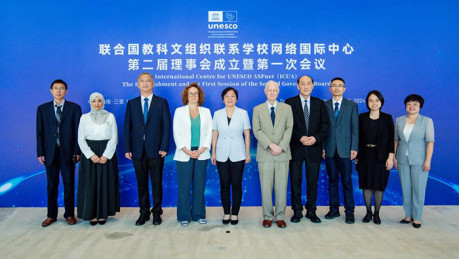
On September 13, 2024, ICUA’s Governing Board convened to consider progress and chart further directions. The meeting was chaired by the Deputy Governor of Hainan Province, and brought together officers from China’s UNESCO National Commission, other branches of government, and UNESCO Headquarters (Paris). Other Governing Board members included Mark Bray in his role as UNESCO Chair at HKU; and Yousriya AlHarthi, who Coordinates the ASPnet schools in Oman, brought a voice from the Middle East. The meeting applauded the hard work and vision of the new leadership.
Two days after the Governing Board meeting, ICUA launched its Youth Campaign to Improve and Protect our Planet. The Opening Ceremony brought together students and teachers from local schools, together with specialists in ocean protection and education for sustainable development. Partners across the world will mobilise young children contribute drawings and teenagers to design projects to fit the theme. The contributions will be judged by an international panel to select award winners and spread the word further.

Book on Regulating Private Tutoring Now Available in Farsi
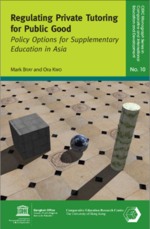
In 2014, the Comparative Education Research Centre (CERC) at HKU published a book by Mark Bray and Ora Kwo entitled Regulating Private Tutoring for Public Good: Policy Options for Supplementary Education in Asia. The book, which drew on a Policy Forum the previous year sponsored by CERC, was co-published with UNESCO’s Asia and Pacific Regional Bureau for Education in Bangkok.
In addition to the work’s academic impact, evidenced in eight book reviews and over 250 citations, the publication has had far-reaching policy impact. For example, it was referenced in a 2014 Report to the United Nations General Assembly (p.12) and again in a 2015 Report to the United Nations Human Rights Council (p.17) by the United Nations Special Rapporteur on the Right to Education. It has also been an input to national policy makers in countries as diverse as China, Eritrea and India.
Further impact from the book was secured through translations into Chinese and Korean in 2015, and into Japanese in 2019. Now these versions are accompanied by a translation into Farsi for a well-known publisher in Iran.
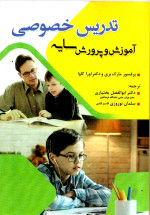
This work is part of the ongoing agenda of the UNESCO Chair to focus on private tutoring. The importance of the theme is being increasingly recognised in both the academic and policy making worlds.
Developments at the International Centre for UNESCO ASPnet
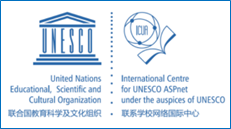 UNESCO’s Associated Schools Programme (ASP) connects over 12,000 schools in 182 countries. The network has three priorities: education for sustainable development, global citizenship education, and inter-cultural and heritage learning.
UNESCO’s Associated Schools Programme (ASP) connects over 12,000 schools in 182 countries. The network has three priorities: education for sustainable development, global citizenship education, and inter-cultural and heritage learning.
In 2019, UNESCO established a Centre to support the programme. It is called the International Centre for ASPnet, and is located in Hainan Province, China.
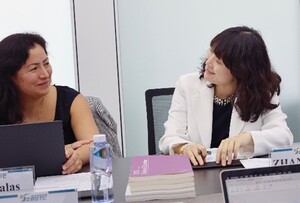
Earlier this year, Professor Zhang Wei (here pictured [right] with Ina Salas from UNESCO HQ) took responsibility as the new Executive Director for the Centre. HKU takes pride in contributing to Professor Zhang’s expertise and leadership, initially through her PhD training and then as a postdoctoral fellow and Secretary of our Comparative Education Research Centre (CERC). Subsequently she moved to East China Normal University (ECNU), with which she retains a role while also leading the ICUA.
On April 10, 2024, the ICUA welcomed visitors from UNESCO Headquarters. They were undertaking an external evaluation of the ASPnet work, and wished to understand the ICUA role within it. This provided a valuable opportunity for the ICUA not only to showcase its work but also to take stock for future planning.
For the formal component of the day, Professor Mark Bray presided over the meeting in his role as UNESCO Chair and Consultant to the Centre. Professor Ora Kwo from HKU also played a Consultant role, alongside the ICUA team. Professor Zhang and colleagues highlighted the ICUAs roles in:
- knowledge production, including curriculum forums and inputs to UNESCO’s work in the futures of education,
- education for sustainable development, including green technologies and ocean conservation in which Hainan has played leading role under the heading of Blue Ribbon,
- human rights, democracy and tolerance, leading up to and building on ongoing global initiatives, and
- intercultural world heritage learning, including collaboration with Liming Vocational University.
HKU’s UNESCO Chair looks forward to continued collaboration with the ICUA in the next phases of its dynamic development and global contributions.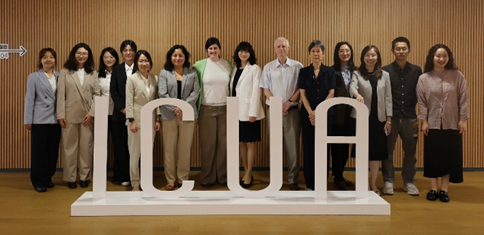
The Evolving Right to Education
The right to education, at least in the elementary and fundamental stages, was enshrined in the 1948 United Nations Universal Declaration of Human Rights. Since that time, consensus on the right to education has been elaborated and refined to reflect changing circumstances across the world.
On December 14, 2023, UNESCO, in its Paris Headquarters, launched a new process of consultation and dialogue on the evolving right. The event was organised in partnership with the UN Special Rapporteur on the Right to Education and the Office of the High Commissioner for Human Rights.
The Framework for the event noted that in the rapidly-changing world, education is undergoing a transformational journey. Education, it added, “is no longer only confined to traditional classrooms and textbooks but has expanded to encompass lifelong and life-wide learning”. UNESCO and partners are considering how the right to education, as enshrined in international normative instruments, can be reinforced to meet these evolving needs and to address the twin crises of equity and relevance.
Professor Mark Bray joined the dialogue his capacity as UNESCO Chair in Comparative Education. He stressed the need to address issues relating to shadow education when considering dimensions of human rights. Participants recognised the pertinence of this remark, which is being taken into account during preparation of the next steps. Related materials are available here.
The UNESCO Teacher Education Centre in Shanghai
Around the world, UNESCO has 14 Category 2 centres in the education sector. The centres are privileged partners with access to UNESCO’s logo and international and intergovernmental bodies, and are an integral part of UNESCO’s Comprehensive Partnership Strategy.
In October 2021, after four years of planning, China officially launched its UNESCO Category 2 Centre in Shanghai. The Centre focuses on teacher education, and is directed by Professor Zhang Minxuan.
Professor Zhang is a graduate of the University of Hong Kong (HKU), having completed his PhD in 2001 under the supervision of Professor Mark Bray. They are here pictured together during Professor Bray’s June 2023 visit to the Centre. Following graduation from HKU, Professor Zhang became Faculty of Education Dean and then President of Shanghai Normal University.
The Centre has remarkable facilities, with a new building opened in 2022. It has already achieved a lot, and has ambitions for much more. Initiatives include training of personnel for special education in ASEAN countries, and of mathematics teachers in Tanzania. Further, in October 2023 the Centre launched an annual Exchange Project for National Education Administrative Officials as part of the 10th anniversary commemoration of China’s Belt and Road Initiative. The event welcomed 33 officials from 17 countries, and focused on both pre-career teacher education and in-career teacher cultivation and training.
HKU is proud to have ongoing links with Professor Zhang, and wishes the Centre continued success in its leadership for international development.
UNESCO-IIEP Reaches its 60th Anniversary Year
UNESCO’s International Institute for Educational Planning (IIEP) was founded in 1963, and thus in 2023 reached its 60th year.

Mark Bray, holder of the UNESCO Chair at HKU, was the IIEP’s eighth Director, from 2006 to 2010. At the invitation of’ the IIEP, Mark Bray prepared a piece for the anniversary website. It is entitled “Evolving Directions in Educational Planning: Looking Back, and Looking Ahead”, and is available here.

The piece commences by revisiting the 2011 book published by IIEP that Mark Bray co-edited with N.V. Varghese. It is entitled Directions in Educational Planning: International Experiences and Perspectives. The book was an assessment of trends in educational planning over the decades, noting challenges in the 1980s but then rejuvenation. The United Nations’ Sustainable Development Goals (SDGs) have provided a focus for this rejuvenation, together with assessments of the impact of COVID-19, artificial intelligence, etc..
Professor Bray then travelled to Paris to join IIEP in their celebratory Symposium on Educational Planning on November 8-9, 2023. Over 1,400 people from 150 countries and territories joined in person and online. They included personnel from Ministries of Education and international agencies, many of whom were former IIEP trainees. The event noted multiple past achievements while looking ahead to the future. A summary, with photographs and videos, is available here.
Convergence in UNESCO…
and a dialogue with younger generations

The HKU UNESCO Chair, of which Mark Bray is the Chairholder, was officially launched on May 18, 2012. Among foremost guests for the launch was Tang Qian, at the time Assistant Director-General for Education in UNESCO Headquarters.
Eleven years later, on June 1, 2023, Tang Qian again held the stage with Mark Bray, this time in a forum organised by East China Normal University (ECNU) entitled “Youth Leaders and Futures of Education”. With a biographical focus it charted a pair of life-histories that had commenced separately and half a century later had converged in Paris.

The forum was attended by graduate students from China and from a dozen African countries. It was chaired by Ora Kwo, who has long acquaintance with both Mark Bray and Tang Qian. Ora Kwo taught in HKU for nearly four decades from 1981, and has her own experiences with UNESCO especially during and after residence in Paris in the late 2000s.
The forum began by stressing the value of dialogue across generations and nations, and with a vision of leadership as a journey of sustainable personal growth. Ora Kwo commenced with a traditional Chinese dictum: “One Family from Four Seas” (四海一家). She invited personal reflections for better understanding of the challenges and opportunities for education in international relationships. Participants were invited to contribute their voices after two rounds of questions to Tang and Bray.

Starting on different sides of the globe
Tang Qian was born in Beijing in 1950, and received his early education in Tsinghua Primary School followed by Tsinghua High School. In 1968, during China’s Cultural Revolution, he was sent to rural Shanxi Province to share peasant lives and strengthen his commitment to nation building and social change. Five years later he became a student in Shanxi University. Following graduation in 1976 he was assigned to a middle school where he taught physical education and English. Then in 1979, as one of the earliest government-funded graduate students, Tang was sent to Canada where he obtained a Master’s degree in exercise physiology and a doctorate in biology from the University of Windsor.
At the crossroads of academia and diplomacy, Tang Qian chose the latter. From 1985 he worked in central ministries and local governments in China, until in 1993 he took a post in UNESCO’s Paris headquarters. His tenure there lasted for 25 years, and is the focus of an autobiography in Chinese of which a summary is available here.
Mark Bray was born in 1952 on the other side of the globe, and completed his schooling in England. In 1970 he experienced excitements of a gap between schooling and university, as a volunteer teacher in a rural secondary school in Kenya. It was a radical immersion in a different culture and in a location without electricity or running water. He returned to Africa during each summer vacation of university studies. Then, following graduation he served in rural Nigeria for two years, again as a volunteer teacher. These experiences, Mark Bray recounted, were seminal in shaping his character. He later enrolled in a Master’s degree in African Studies at the University of Edinburgh, Scotland, following which he returned to Nigeria to teach and to conduct fieldwork for his doctorate which was completed in 1980.
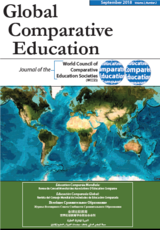
Mark Bray taught at the University of Edinburgh until 1981, and then moved to Papua New Guinea. After three years there, he moved briefly to the University of London and then, in 1986, to Hong Kong. He became a Chair Professor at HKU in 1999 and Dean of the Faculty of Education in 2002. During the 1980s and 1990s he undertook assignments for UNESCO in diverse countries. His biography has been written as an article in Global Comparative Education, the journal of the World Council of Comparative Education Societies (WCCES).
Convergence
During the mid-2000s, the two career paths converged. Mark Bray took leave from HKU and served as Director in Paris of UNESCO’s International Institute for Educational Planning (IIEP) from 2006 to 2010. During that period he worked with Tang Qian, who was in UNESCO Headquarters, and their collaboration continued when Bray returned to HKU. In addition to the 2012 launch of the UNESCO Chair, significant occasions of convergence included the 2012 triennial Conference of Commonwealth Education Ministers (CCEM) in Mauritius for which Bray prepared the lead document and Tang represented UNESCO. Three years later, they met at the World Education Forum (WEF) in South Korea, which assessed progress towards UNESCO’s Education For All (EFA) agenda and set the groundwork for incorporation of further objectives in the United Nations’ Sustainable Development Goals (SDGs).
The narrative of convergence was elaborated during the ECNU forum when the dialogue with the graduate students centred on understanding of cultural differences. Bearing in mind UNESCO’s mission of building peace in the minds of people, as stated in its Constitution (1946), the forum included lively discussion on dimensions of international collaboration. Recognising the significance of cultural roots and national identities, the forum observed that international participation and service demand maturation beyond a narrow sense of cultural understanding. A global community needs outreach to understand contexts and to find ways to bridge philosophies and work agendas. Cultural differences do not necessarily generate conflicts if everyone is engaged in learning to accommodate differences for team building.
Along this line came a question from the floor: How did you make up your minds to live in a ‘home-in-the-world’? The flow of the dialogue then led to a challenge to the participants: As each career trajectory is unique, taking place in specific social, cultural and political contexts, are you observing your footprints for your own growing biographies?
Epilogue
Following the event were further comments from various students and teachers. As un-retiring retired professionals, Tang and Bray had enhanced each other through their reminiscences, which in turn had led participants to think about their own biographies. The event reminded participants that the futures of humanity are up to us to shape. The synergy between vision and mission may be less remote when we can enter dialogues with respectful listening.
Perhaps there is a strong desire among our graduate students to rise to challenges and actualise their potential. As expressed by one participant, “The forum held up a mirror for us to think about how we can view international careers and service… What we will turn out to be is mostly decided by our attitudes and actions. We need to get involved, keep learning and never lose hope!”

Another participant noted the careful preparation behind the scene, including the semi-circular layout of the seating and the preparation of paper slips to encourage written contributions from the floor. This participant added that “the dialogue was beautifully choreographed with use of metaphors, such as footprints, so critically thought-provoking and delightfully genuine, while inspiring imagination of the futures that were not experienced by Tang and Bray! And we have to make it there!”
Further references
Tang Qian’s autobiography is currently only available in Chinese, as is the summary. However, the electronic version of the summary can be readily translated with computer software. Mark Bray’s biographical article is in English, with abstracts in the other five official UN languages. Alongside, of course, are countless biographies and related resources from other people in paper and electronic formats; and these should be viewed in the context of documentation from the international agencies themselves. Such resources can be explored by individuals on their own or within group endeavours like ECNU’s programme for youth leaders and the futures of education.
Regulating Shadow Education

The UNESCO Chair is pleased to be associated with a new book written by Professor Zhang Wei. The book, published by Routledge, is entitled Taming the Wild Horse of Shadow Education: The Global Expansion of Private Tutoring and Regulatory Responses. It can be downloaded free of charge here.
Zhang Wei completed her PhD at HKU in 2013, focusing on shadow education in China. She remained in HKU for some years as a postdoctoral fellow and Secretary of the Comparative Education Research Centre (CERC). Now she is Executive Director of the Centre for International Research in Supplementary Tutoring (CIRIST) at East China Normal University (ECNU), Shanghai.
The book builds on Professor Zhang’s background report for UNESCO’s Global Education Monitoring (GEM) Report on non-state actors in education. That background report was prepared when she was a GEM Fellow in 2020/21, and has had significant impact not only as a contribution to the UNESCO analysis but also more widely.
The Routledge book expands the geographic coverage and is truly global in focus. It notes the diversity of regulations where they exist, and the absence of regulations in various laissez faire environments. It contains specific chapters on Japan, China, India, Egypt and Denmark. The book closes with four takeaway messages:
• Shadow education is here to stay, and therefore should be regulated rather than ignored.
• Policies for shadow education should encompass multiple reference points.
• Shadow education and schooling must be considered together.
• Partnerships should go beyond the modes of commercial trade.
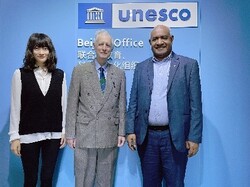
Professor Zhang is continuing her work on this important theme, much of it in collaboration with UNESCO and the UNESCO Chair. She is pictured here in UNESCO’s Multisectoral Office in Beijing, with Chairholder Mark Bray and UNESCO Education Programme Specialist Robert Parua.
The Largest CIES Conference in History

The US-based Comparative & International Education Society (CIES) is the oldest professional body in the field of comparative education. Its 2023 conference in Washington, D.C. was the largest in the CIES’ 67 years of history, with 1,000 sessions attracting 3,600 participants (with 2,900 onsite, others online). It focused on "Improving Education for a More Equitable World".

Mark Bray, UNESCO Chairholder, was invited to join the Opening Ceremony on February 14, 2023. He did this in his role as a past CIES president (2016-2017) as well as a past president of the Comparative Education Society of Hong Kong (CESHK, 1998-2000) and of the World Council of Comparative Education Societies (WCCES, 2007-2010).
Within the conference, Mark Bray also chaired a Presidential Invited Session on Shadow Education in Asia. Panellists included Wei Zhang focusing on models of governance in Japan, India and China; Nisma Elias focusing on the reproduction of elite status in Bangladesh; and Hang Bich Duong focusing on teachers’ motivations and identities in relation to private tutoring in Vietnam. Priyadarshani Joshi, from UNESCO’s team for the Global Education Monitoring (GEM) Report, was the Discussant.

The panel observed that by default, shadow education tends to make the world less rather than more equitable. However, scope exists to enhance its positive sides and reduce its negative sides through improved data on the dynamics of shadow education accompanied and through strengthened governance.
30th Anniversary of the UNESCO Chairs Programme
On November 3 to 4, 2022, UNESCO convened a conference in Paris to celebrate the 30th anniversary of the UNITWIN/UNESCO Chairs Programme. The event was attended in person by over 500 Chairs from around the world, with others joining online.

Among the opening speakers was Federico Mayor, who had launched the programme in 1992 during his tenure as UNESCO Director-General (1987-99). Introduced by Stefania Gianini, the current Assistant Director-General for Education, Mayor recalled the vision at that time. Participants lauded the vision, which they felt had indeed been largely accomplished and was ongoing.
Another highlight was the keynote address by Achille Mbembe from the University of the Witwatersrand, South Africa. It was entitled “The Transformation of the Knowledge Commons: Perspectives from the Global South” and, together with other plenary sessions, is available here.

The overall conference theme was “Transforming Knowledge for Just and Sustainable Futures”. The occasion attracted Chairs from all sectors, thus including not only education but also science and culture. The event added significant momentum to revisioning of the UNITWIN/UNESCO Chairs programme, promoting intellectual leadership and cross-disciplinarity. Break-out groups included an interactive session for Chairs in the Asian region.
The HKU Chair contributed a one-minute video to contribute to the global presentation played on a continuous basis in the UNESCO Headquarters throughout the two days.
Books now available in Arabic
A major focus for the UNESCO Chair is on shadow education around the world. Two recent books (scroll down for more information) have focused on:
- Shadow Education in Africa, published by the HKU Comparative Education Research Centre (CERC) in English, French, and Portuguese, and
- Shadow Education in the Middle East, published by Routledge in English.
Now both books are also available in Arabic. This has been achieved through collaborate with the UNESCO Regional Center for Educational Planning (RCEP) in the United Arab Emirates.
All these books are available for free download. The UNESCO Chair is very pleased to reach different language groups in this way.
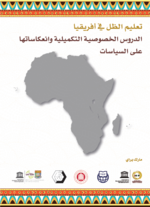


Private Supplementary Tutoring in Cambodia
Professor Mark Bray has recently been the Discussant for a presentation entitled Factors Influencing Cambodian Students’ Private Tutoring Engagement at Upper Secondary Schools. The presentation was by Mr Soeung Sopha, and hosted by the Cambodia Development Resource Institute (CDRI) on August 26, 2022.

Mark Bray’s history of empirical research in Cambodia stretches for a quarter of a century. His work for UNESCO and UNICEF in the 1990s led to a book published in 1999 by UNESCO’s International Institute for Educational Planning (IIEP). The book was entitled The Private Costs of Public Schooling: Household and Community Financing of Primary Education in Cambodia. Expenditures on private tutoring were among the striking components of those household costs.
This book was followed by another in 2005, co-authored with Seng Bunly and entitled Balancing the Books: Household Financing of Basic Education in Cambodia. The research was conducted under the auspices of the World Bank, repeating the earlier sample survey of primary schools and adding lower secondary schools.
Then in the mid-2010s Mark Bray returned to Cambodia to examine patterns in Grades 9 and 12. Among publications are articles in the International Journal of Educational Development (2016) and the Journal of Curriculum Studies (2018).

These historical perspectives greatly assisted Mark Bray in his role for the CDRI seminar. Seoung Sopha had collected data on tutoring provided by serving teachers, highlighting some of the ethical issues that arose when such teachers tutored their existing students. The seminar heard about the justifications given by teachers for such activities, including supplementing their salaries and completing the curriculum during a tight school day. It also heard the perspectives of students, including the pressures they felt from the teachers in what can be called “a privatised component of the public system”.
Cambodia patterns also show the resilience of private tutoring despite government policies that to reduce or remove it. Once such practices become engrained in the culture, Professor Bray remarked, they are very difficult to eliminate. Thus, even if official policies sanction such tutoring, much continues underground. Analysis of the Cambodian picture contributes usefully to the international picture as well as to the national one.
Shadow Education in the Middle East
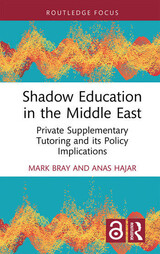
The UNESCO Chair is glad to announce the publication of Shadow Education in the Middle East: Private Supplementary Tutoring and its Policy Implications. It is a path-breaking study of a region that has received little attention in the shadow education literature, and can be downloaded here.
As mentioned in an earlier post (scroll down for details), the book has been written by Mark Bray, who holds the UNESCO Chair, and Anas Hajar who is an Associate Professor at Nazarbayev University in Kazakhstan.
The book focuses on 12 Arabic-speaking countries of the region. Six of these countries are members of the Gulf Cooperation Council (GCC), i.e. Bahrain, Kuwait, Oman, Qatar, Saudi Arabia, and United Arab Emirates. The other six are Iraq, Jordan, Lebanon, Palestine, Syria and Yemen. The GCC members are known for the prosperity brought by oil resources, and can usefully be compared as a group with the other six. At the same time, much diversity exists within each group.
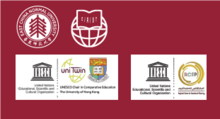
The work has been conducted in conjunction with the Centre for International Research in Supplementary Tutoring (CIRIST) at East China Normal University and the UNESCO Regional Center for Educational Planning (RCEP) in United Arab Emirates. The UNESCO Chair much appreciates this collaboration.
Asia-Pacific Meeting of Education Ministers

From 5 to 7 June 2022, UNESCO and UNICEF jointly organised the second Asia-Pacific Regional Education Ministers Conference (APREMC II). The event was held in Bangkok, Thailand. A core focus was the Five-Year Progress Review of SDG 4 – Education 2030 in Asia-Pacific released in September 2021 by UNESCO and UNICEF.
The report showed that despite overall progress, most countries surveyed were not on track to achieving the fourth of the UN Sustainable Development Goals (SDGs). The Asia-Pacific region, it said, was facing a learning crisis well before the COVID-19 pandemic, and that this crisis had been alarmingly exacerbated by the broader impact of COVID-19 on societies and economies.
The Ministers Conference was also an occasion for regional launch of UNESCO’s 2021/2 Global Education Monitoring (GEM) Report on non-state actors in education. HKU made a strong contribution, with presentations first by Mark Bray on private supplementary tutoring (shadow education), and then by Nirmala Rao on early childhood education.
Re-envisioning the Future of Education
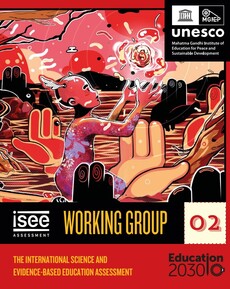
UNESCO’s Mahatma Gandhi Institute of Education for Peace and Sustainable Development (MGIEP) has launched its International Science and Evidence Based Education (ISEE) Assessment. It brings together multi-disciplinary expertise on educational systems and reforms from a wide range of stakeholders. The report is a huge accomplishment, based on four working groups for:
- 1. Education and Human Flourishing,
- 2. Education and Context,
- 3. Education and the Learning Experience, and
- 4. Education Data and Evidence.
The HKU UNESCO Chair particularly contributed to Working Group 2. Its section of the report can be downloaded here. Specific foci include political economy implications for efficiency, equity and social justice. The report also addresses education technology, neuroscience, and curriculum in a changing world.
Book about comparative education research now available
in Turkish

The best-selling (and, we think, most-read) book published by the Comparative Education Research Centre at the University of Hong Kong is Comparative Education Research: Approaches and Methods, edited by Mark Bray, Bob Adamson and Mark Mason. It is now available in 11 languages (including English), among which Turkish is the latest addition.
The first edition, published in 2007, is available in:

And now the second edition is available in:
- Korean,
- Portuguese,
- Russian, and
- Turkish.
We are proud to reach such wide readership. The book is core reading for university students around the world, has been reviewed in 33 journals, and has several thousand citations (including individual chapters) in the international literature. To learn more about the book, click here.
GEM Report on Non-State Actors in Education

Among UNESCO’s flagship annual publications is the Global Education Monitoring (GEM) Report. These reports monitor progress towards the UN Sustainable Development Goals, and particularly Goal 4 which is about education. The thematic focus of the report released in December 2021 is Non-State Actors in Education: Who Chooses? Who Loses?.
Team members associated with the UNESCO Chair made major inputs to this year’s report, particularly on the theme of shadow education. Zhang Wei, who completed her PhD at HKU and was then Secretary of the Comparative Education Research Centre before moving to East China Normal University, was a 2020 GEM Fellow and member of the GEM Advisory Board. She wrote a far-reaching Background Paper about ‘The Nature, Dynamics and Regulatory Implications of Private Supplementary Tutoring’. It is a global work with case-study material on China that is especially valuable in the light of far-reaching regulations issued in July 2021.
Allied, Mark Bray wrote a Background Paper on shadow education in Sub-Saharan Africa. It was subsequently expanded to include North Africa and, as explained elsewhere on this website, published (in English, French and Portuguese) as a book. It can downloaded here. It also included remarks about regulations that were highlighted in the report.

Source: UNESCO GEM Report 2021, p.17
Other works cited in the report include the paper on shadow education in India written by Shalini Bhorkar and Mark Bray and published in the International Journal of Educational Development, the CERC book entitled Regulating Private Tutoring For Public Good by Mark Bray and Ora Kwo, and Bray’s Presidential Address to the Comparative and International Education Society (CIES) published in the Comparative Education Review.
After Africa comes the Middle East

Hot on the heels of the book on Shadow Education in Africa (scroll down for information) will be the next on the Middle East. It is being co-authored by UNESCO Chairholder Mark Bray and Anas Hajar of Nazarbayev University in Kazakhstan. Anas is a Syrian national with much knowledge of the wider Middle East, and has researched shadow education in England and Kazakhstan.
The book focuses on 12 countries of the region, namely Bahrain, Iraq, Jordan, Kuwait, Lebanon, Oman, Palestine, Qatar, Saudi Arabia, Syria, United Arab Emirates (UAE), and Yemen. In all these countries, Arabic is the (or an) official language, and they have much shared culture. Yet they also display much diversity, especially in economics. Six of the countries are prosperous members of the Gulf Cooperation Council (GCC), while the others are lower-income neighbours.
A key partner in preparation of the book is the UNESCO Regional Center for Educational Planning (RCEP) in the UAE. RCEP helped collect data from Ministries of Education, and on 22 November 2021 hosted an online Policy Forum.
The Policy Forum was a bilingual English and Arabic event, and focused on a draft of the book in both languages. It was attended by 33 participants, including personnel from Ministries of Education across the region, researchers with strong expertise in the theme, teachers, and tutors. Many participants also drew on their own experiences as former students and/or as parents.
The Policy Forum validated the core messages of the manuscript while also providing additional insights and access to follow-up materials. Participants indicated that the event also stimulated their own thinking about appropriate actions to address shadow education more effectively.
Portuguese translation of the book about Shadow Education in Africa
In November 2021, UNESCO Chairholder Mark Bray launched the Portuguese translation of his book about Shadow Education in Africa. The book is published by the Comparative Education Research Centre at the University of Hong Kong in conjunction with the UNESCO Chair. It appeared first in English, followed by French and now Portuguese. Arabic is on the way, completing the set of four main official languages spoken on the African continent.
The book is an elaboration of a background paper for UNESCO’s Global Education Monitoring (GEM) Report, of which the 2021/22 iteration focuses on non-state actors in education. Shadow education features prominently in that report, in large measure reflecting the inputs of Professor Bray and colleagues.
The Portuguese translation was prepared by Candido Gomes in conjunction with the UNESCO Chair in Youth, Education and Society at the Catholic University of Brazil. It was supported by Alexandre Ventura at the University of Aveiro in Portugal and by Rui Da Silva at the Centre for African Studies of the University of Porto.
The book was launched on 19 November 2021 at a conference hosted by the University of Aveiro. The conference focused on the management of education in times of uncertainty. Within this context, Professor Bray first gave a keynote address on shadow education worldwide, before turning specifically to Africa with a launch of the book.
The event was chaired by Alexandre Ventura who is himself a noted researcher on shadow education in Portugal and Brazil and who has excellent connections with Lusophone African countries including Angola and Mozambique. As a former Deputy Minister of Education in Portugal, Professor Ventura is helping to call the book to the attention of policy makers as well as researchers.
French-language edition of Shadow Education Book discussed by Ministers of Education in Africa

On 15 April 2021, CONFEMEN (Conférence des ministres de l’Éducation des États et gouvernements de la Francophonie), which is headquartered in Senegal, hosted high-level webinar focused on the book written by Mark Bray L’éducation de l’ombre en Afrique (i.e. the French translation of the book Shadow Education in Africa: Private Supplementary Tutoring and its Policy Implications).
The event was co-hosted by France Éducation International, which is an arm of the French government responsible for international relations in the education sector.
Following introductions by CONFEMEN Secretary-General Abdel-Rahamane Baba-Moussa and FEI Director-General Pierre-François Mourier, Mark Bray

- Chad: Aboubakar Assidick Tchoroma,
- Gabon: Camelia Ntoutoume-Leclerq,
- Guinea: M. Bah,
- Guinea Bissau: Arcenio Adulai Baldé,
- Senegal: Chaikana Lam, and
- Togo: Dodzi Kokoroko.
Other speakers included:
- Alioune Sall, Director of the African Futures Institute (AFI),
- Manos Antoninis, Director of UNESCO’s Global Education Monitoring Report,
- David Atchoarena, Director of the UNESCO Institute for Lifelong Learning, and
- Koumbou Boly Barry, Chief of Education in ICESCO, and United Nations Special Rapporteur on the Right to Education.
All speakers recognized the need to focus more clearly on private supplementary tutoring, especially in the context of social inequalities. More data are needed and wider discussion in order to ‘take the topic out of the shadows’.
Futures of Education: What can and should we anticipate in 2050?
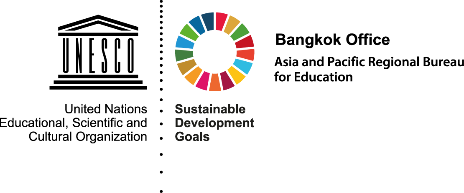
UNESCO has commissioned a high-level International Commission, chaired by the President of Ethiopia, to consider patterns and desirable directions for education in the coming decades. A core theme is ‘Learning to Become’.
The Commission has released a Progress Update for general consultation. Comments submitted by Mark Bray in his role as a UNESCO Chairholder were welcomed by the team in UNESCO Headquarters.

Reaching Audiences through Different Media
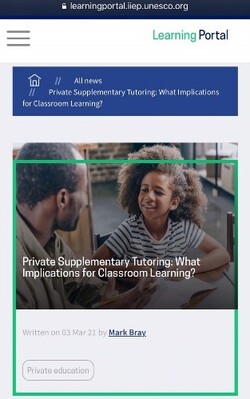
Following the launch of the book Shadow Education in Africa: Private Supplementary Tutoring and its Policy Implications (see below), efforts have been made to reach diverse audiences. Two channels for doing so are:
- the UNESCO-IIEP Learning Portal, which has a blog entitled Private Supplementary Tutoring: What Implications for classroom learning?, and
- the parallel blog for the UNESCO Teacher Task Force: Teachers as Tutors: Evidence from Africa.
The book is also the focus of a FreshEd podcast during which Professor Bray was interviewed by Will Brehm.
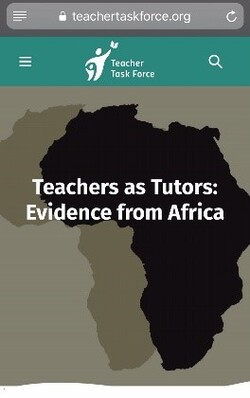
Shadow Education in Africa
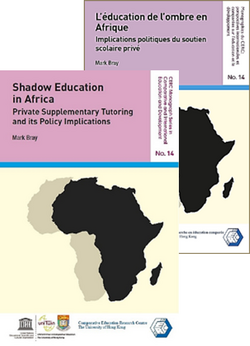
The UNESCO Chair is pleased to announce the latest volume in the Monographs series published by the HKU Comparative Education Research Centre (CERC). Written by Mark Bray, it is entitled Shadow Education in Africa: Private Supplementary Tutoring and its Policy Implications. It can be downloaded free of charge or purchased in paper copy for HK$100 or US$16 including postage through this website.
The book builds on a Working Paper for UNESCO’s Global Education Monitoring Report, which for the 2021/22 edition focuses on non-state actors in education. Shadow education is recognized as a component on non-state activity of growing scale and significance.
The book addresses both Sub-Saharan and North Africa, and draws many lessons from comparative analysis. It is the first comprehensive work on shadow education in Africa. Particular attention is paid to regular teachers who also provide tutoring, and to private-sector enterprises.
Portuguese and Arabic translations will be published in due course.
Translations of shadow education books
Two new translations have been published of books by Mark Bray about shadow education.
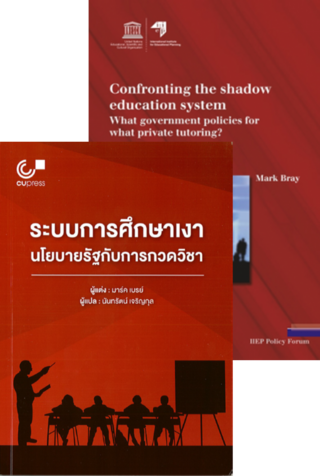
The first is a Thai translation of the book Confronting the Shadow Education System: What Government Policies for What Private Tutoring?, published by UNESCO’s International Institute for Educational Planning (IIEP). It brings to 21 the total number of languages in which this book is available. Following the original in English, translations have been made into Arabic, Armenian, Azeri, Bengali, Chinese, Farsi, French, Georgian, Hindi, Kannada, Korean, Mongolian, Nepali, Polish, Portuguese, Sinhala, Spanish, Thai, Urdu, and Uzbek. The Thai version is published by Chulalongkorn University Press.
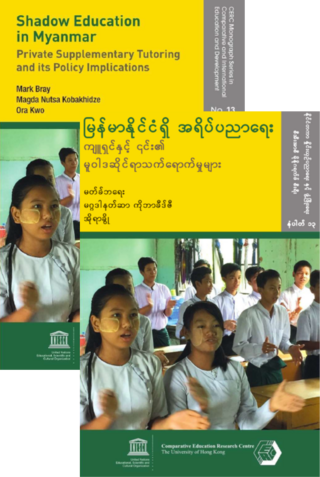
The second book is the Myanmar-language version of Shadow Education in Myanmar: Private Supplementary tutoring and its Policy Implications. This book, co-published by CERC and UNESCO and with collaboration of Yangon University of Education, was authored by Mark Bray, Magda Nutsa Kobakhidze and Ora Kwo. Both versions may be downloaded free of charge from here.
UNESCO GEM Report Fellowship
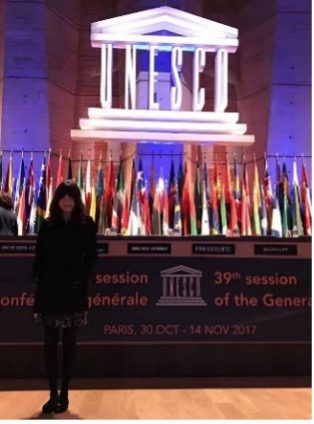
UNESCO’s Global Education Monitoring (GEM) Report has established a prestigious Fellowship to “strengthen the evidence base on education … and reinforce the links between research, policy, and practice”. The fellowships are “open to exceptional individuals who … demonstrate a potential for transformational impact in their domain, and share a commitment to provide more people with better educational opportunities”.
We are delighted that Professor Zhang Wei, from East China Normal University (ECNU) won this Fellowship for the 2020 round, having been selected among the four from over 150 applicants. Prior to moving to ECNU in November 2018, Professor Zhang worked closely with the HKU UNESCO Chair, first as a PhD student and then as a Postdoctoral Fellow.
The Fellowship has permitted Professor Zhang to explore new and existing data on shadow education, drawing on her experience in Cambodia, China, Denmark, Japan and Myanmar. The analysis explores recent developments in various settings, ranging from East Asia (with the longest history of the practice) to the Nordic countries (with the shortest history), as well as policies that have unintentionally legitimized tutoring.
UNESCO Global Education Monitoring Report on Non-State Actors

The 2021 iteration of UNESCO’s Global Education Monitoring (GEM) Report will be about the roles of non-state actors in education. This is a very important theme, covering both for-profit and not-for-profit providers and including a focus on shadow education.
At the invitation of the GEM Report team, Professor Mark Bray prepared a blog about shadow education, available here. It highlights the scale of the phenomenon in a range of countries, and comments on its implications not only for learning but also for social inequalities.
With other colleagues, Professor Mark Bray is now preparing further inputs, helping to shape the agenda and to focus attention on themes.
UNESCO’s Futures of Education Initiative
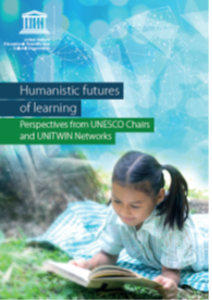
UNESCO has launched a visionary Futures of Education initiative, to which UNESCO Chairs have made contributions. Their inputs have been collected in a volume published in time for the initial meeting of its distinguished Commission led by the President of Ethiopia.
The volume, entitled Humanistic Futures of Learning: Perspectives from UNESCO Chairs and UNITWIN Networks may be downloaded here in English and French. From the HKU Chair in Comparative Education, Professor Mark Bray contributed a chapter on shadow education, showing how the phenomenon has changed the nature of schooling across the world and will continue to expand and adapt.
For details of the context for the UNESCO initiative, please visit the website.
CIES 2019
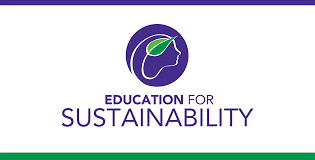
The world’s oldest and largest association for comparative study of education is the US-based Comparative and International Education Society (CIES), founded in 1956. From 14-18 April 2019, the Society held its annual conference in San Francisco, USA. It was the largest event in CIES history, with 3,800 registrants.
The conference theme was ‘Education for Sustainability’, with a particular focus on the United Nations’ 17 Sustainable Development Goals (SDGs). UNESCO was well represented in both plenary and parallel sessions.
Within the conference, a pair of sessions focused on the HKU work on the shadow education system of private supplementary tutoring. This can be linked to the SDGs in multiple ways, including understanding of the impact of marketization of education in neoliberal economies and attention to the quality and quantity of education received by different social groups. The photo shows some members of the HKU shadow education team, namely Mark Bray, Feng Siyuan, Zhang Wei, Pubali Ghosh and Shalini Bhorkar.
Related, the book table for HKU’s Comparative Education Research Centre (CERC) was shared with East China Normal University (ECNU) for their newly-launched ECNU Review of Education. Vol.2 (1) of the journal is a special issue on private supplementary tutoring co-edited by Zhang Wei and Mark Bray. It is available for open access on the internet, and fitted excellently with the discussions during the conference.
.jpg)
Deepening understanding of shadow education in Myanmar
Peter Suante is a PhD student at the University of Hong Kong and, like Pubali Ghosh who prepared the item below for this website, is focusing on private supplementary tutoring and supported by the UNESCO Chair. His work focuses on Myanmar, and builds on his Master’s dissertation completed in Beijing Normal University in 2017.

Peter also provided valued support for the research project funded by UNESCO and led by Mark Bray, published by CERC in 2020 and available for free download here. That project focused only on Yangon, while Peter’s research focuses on Mandalay Region and Chin State.
Private tuition, known in Myanmar as Kyushin (a word adapted from English), has evolving into a socio-cultural norm in Myanmar but has received very little research or policy attention. The quantitative component of my research indicated that 78.7% of the 1,301 surveyed Grade-11 students received at least one form of private tuition. This was lower than the 86.2% recorded in the CERC-UNESCO study, but very noteworthy since my sample included rural and remote communities. Some of this tutoring was delivered on a one-to-one or small-group basis by teachers, while other students joined tutorial centres that advertised their existence in public locations (see picture).
One dimension of my research observes that private tutoring may replace rather than supplement schooling. Students had to be registered in schools in order to sit the national examinations; but many came only to have their attendance recorded, and nearly half indicated in the survey responses that if they had a choice they would only attend private tutoring.

Like Pubali Ghosh (see below), I needed to secure the confidence of teachers, tutors and students when conducting my research, not least because much tutoring provision contravenes regulations. Government teachers are officially prohibited from providing tutoring, and many tutorial centres operate on a shaky legal basis. Further, schools are reluctant to admit that actual attendance is less than official attendance because they fear sanction from the authorities and reduction of resources. I have therefore devoted much attention to informal networking as well as to the more formal sides of the research. In some respects it has been easier to do this in rural areas, since people have been more willing to welcome visitors, especially after management of the challenging roads by motorcycle!
It is a pleasure and privilege at the University of Hong Kong to work with peers and seniors who have themselves investigated shadow education in a wide range of contexts. I recently shared methodological aspects of my work with members of our Special Interest Group (SIG). The meeting included participants having investigated the theme in Bangladesh, Czech Republic, Georgia, Hong Kong, India and Mainland China. I am very glad to add Myanmar to this list.
Excitements and challenges of fieldwork for doctoral research
Pubali Ghosh is a PhD student at the University of Hong Kong, supported by the UNESCO Chair. Her research focuses on private supplementary tutoring in West Bengal, India. It builds on her excellent Masters dissertation, from which was published a paper in the International Journal of Comparative Education and Development that won a prestigious Literati Award. Here she outlines her doctoral research and some experiences when conducting fieldwork.
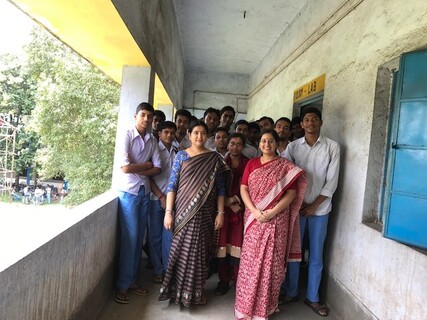
Shadow Education is ubiquitous in West Bengal. Participation is particularly high among senior secondary students, with more than 90% of them receiving tutoring. My research follows a qualitative longitudinal approach to understand how senior secondary students construct decisions regarding private tutoring. I am tracking 30 students through their educational decision-making journey, with each student being interviewed multiple times over 1-2 years. I have also interviewed 85 other actors in the West Bengal tutoring ecosystem, including teachers, tutors, teacher-tutors, principals, and parents. A pilot questionnaire survey of 356 students set the background.
Initial access to participants was challenging for two reasons. First, private tutoring is sensitive due its semi-illegality; and second, senior secondary students are extremely busy preparing for multiple higher education entrance examinations. Sometimes participants agreed to appointments but did not arrive.

Several lessons were learned from these initial experiences, and strategies were employed to meet this challenge. For example, trust was very important. This involved developing rapport, and telling participants about my background and research purpose. Some gatekeepers helped to secure participants, but more valuable was snowball sampling to approach participants through their friends, relatives or acquaintances. Informal group discussions and brainstorming sessions with prospective participants was also effective.
I am now in the process of writing up, and am excited to be able to contribute to conceptual understanding through this work. I am glad to help remedy the neglect of the topic in India, and to contribute to the international literature.
Regulating Private Tutoring in China
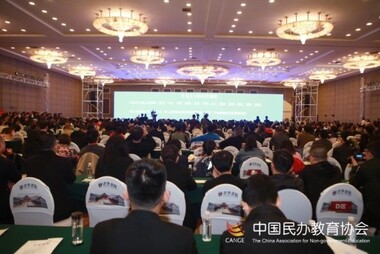
In 2018, the China’s national government introduced far-reaching regulations for the private tutoring industry. The regulations sought to protect consumers and to reduce stress and study burden on students. The 2014 book by Mark Bray and Ora Kwo entitled Regulating Private Tutoring for Public Good: Policy Options for Supplementary Education in Asia was a significant input to the drafting process. This book had been published by the HKU Comparative Education Research Centre (CERC) in conjunction with UNESCO, drawing on a pair of international policy forums the previous year.
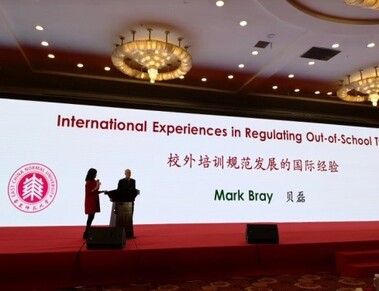
In April 2019, the China Association for Non-Government Education (CANGE) convened a meeting in Beijing to consider the enactment of the new regulations and the needs and scope for fine-tuning to serve different types of private tutoring and different communities around the country. The CANGE is a bridge between the tutoring industry and the government, and both sides were well represented. Approximately 1,000 participants from all parts of the country attended the meeting.
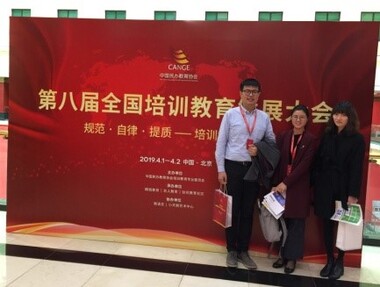
Mark Bray presented a keynote address in the opening session. He drew on the 2014 book and on his further research together with that by HKU team members and others including East China Normal University (ECNU). “This was a very significant event,” he remarked, “and it is exciting to see ways in which our research is having impact at the levels of policy and practice throughout China.”
